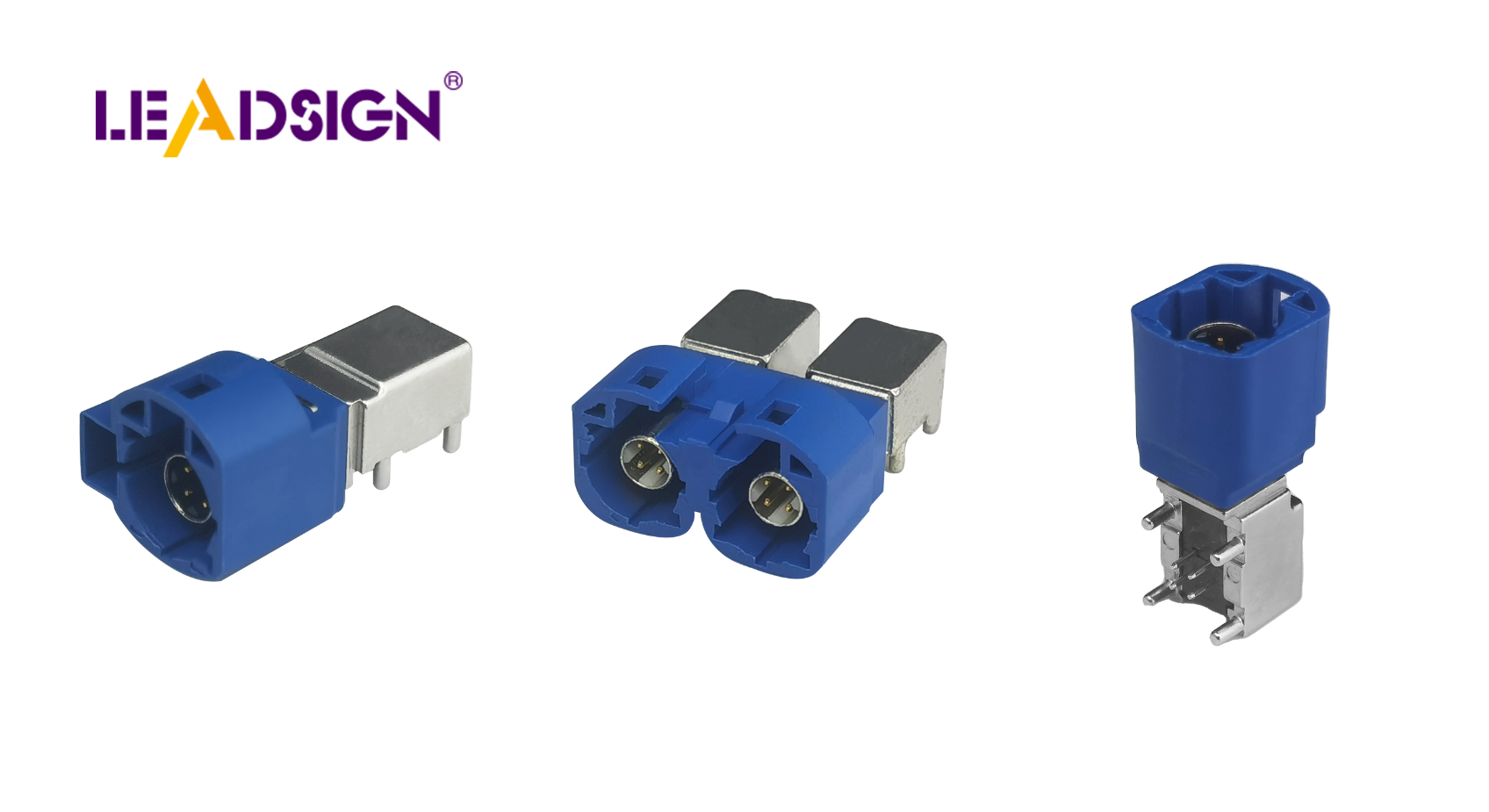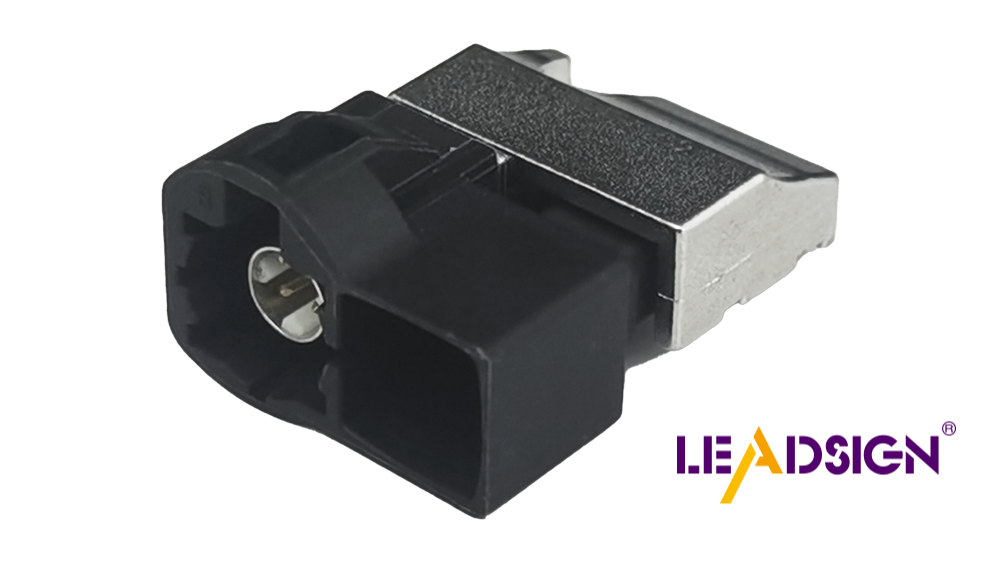Choosing the Right Auto Electrical Connectors Plugs

Choosing the right vehicle connectors is crucial. They ensure your car operates efficiently and remains safe. These connectors facilitate smooth electrical flow, preventing potential issues. Electrical contact failure accounts for approximately 45% of problems in car connectors. Selecting the appropriate connectors enhances your vehicle's safety and reliability. This decision significantly impacts your car's performance, ensuring that all components function correctly and securely.
Key Takeaways
Choosing the right auto electrical connectors is essential for your vehicle's safety and performance, as they prevent electrical failures.
Understand the different types of connectors—like blade, bullet, and butt connectors—and their specific applications to ensure proper functionality.
Consider your car's power needs by checking the current and voltage ratings of connectors to avoid overheating and potential hazards.
Select weatherproof connectors to protect your car's electrical systems from moisture and dust, ensuring longevity and reliability.
Ensure proper cable fit by matching connectors to the wire size, which prevents loose connections and electrical shorts.
Regularly inspect and maintain your connectors to identify wear or damage early, saving you money and enhancing safety.
Choose high-quality connectors and install them correctly to maximize their lifespan and maintain your vehicle's electrical efficiency.
Understanding Vehicle Connectors

To keep your car's electrical systems working well, you need to know about different types of auto electrical connectors. These connectors help your car's circuits work properly.
Types of Connectors
Blade Connectors: Blade connectors are flat and slide into slots. They are easy to use and reliable. You find them in fuse boxes where quick disconnection is needed.
Bullet Connectors: Bullet connectors are round and snap in place. They are good for areas with lots of shaking, like engine compartments.
Butt Connectors: Butt connectors join two wires in a straight line. They are useful for extending wires or connecting different wires. They keep the electrical flow smooth.
Ring and Spade Terminals: These are simple types of connectors. They have a metal ring or spade that attaches to screws. They are used in low-power places like lights and radios.
Specific Applications of Auto Electrical Connectors
Engine Compartment: In the engine area, auto electrical connectors need to handle heat and shaking. Bullet and blade connectors are used here because they are strong and fit well.
Interior Wiring: Inside the car, you need connectors that are easy to use. Wire connectors like butt and terminal connectors are used for dashboards and infotainment systems.
Lighting Systems: Lights need connectors that handle different power levels. Ring and spade terminals are used because they give a stable connection for headlights and taillights.
Knowing these types of connectors and their uses helps you pick the right auto electrical connectors for your car. This keeps your car's electrical systems working well and safe.
Factors to Consider When Choosing Auto Electrical Connectors
When picking auto electrical connectors for your car, think about key things. These help your automotive wiring systems work well and safely.
Power Needs
Knowing your car's power needs is important. Check the current and voltage ratings of the power connectors. These show how much electricity the connectors can handle. If you pick weak connectors, they might get too hot or break. This can be dangerous. Always look at the power cable details to match your car's power needs. This stops electrical problems and keeps things working right.
Weather Concerns
Moisture resistance matters when choosing auto electrical connectors. Cars face tough weather like rain and snow. Weatherproof connectors keep water and dust out. This keeps your car's electronics working. Studies say connectors must fight weather and rust to stay good. So, pick connectors with strong moisture resistance for lasting use.
Cable Fit
Cable fit is also important. Make sure connectors fit the wire size and cover in your car. Different connectors fit different wires, so match them right. Terminal connectors and multi-pin connectors give choices for cables. By checking cable fit, you stop loose connections or shorts. Good connectors and cables make your car's electrical systems safe and efficient.
Installation and Care of Electrical Connectors
Installing and taking care of auto electrical connectors helps your car work well. Use the right steps to stop problems and make connectors last longer.
How to Install Correctly
Crimping vs. Soldering: There are two ways to connect wires: crimping and soldering. Crimping squeezes the connector onto the wire. It's fast and works for most jobs. Soldering melts metal to join the wire and connector. It makes a stronger bond. Experts say soldering is safer and lasts longer. Pick the best way for your job.
Making Sure Connections Are Tight: Use the right tools and follow instructions. Connectors should fit tightly with wires. For multi-pin connectors, check each pin is in place. This stops loose connections that can cause problems.
Keeping Connectors in Good Shape
Regular Checks: Check your auto electrical connectors often. Look for wear, rust, or damage. Regular checks find problems early and save money. Pay close attention to power connectors. They carry more electricity and wear out faster.
Cleaning and Stopping Rust: Keep connectors clean for good performance. Use a soft brush or air to remove dirt. For weatherproof connectors, make sure seals are good to keep water out. Use a rust blocker to protect connectors from rust, especially in tough places.
By installing and caring for your connectors, your car's electrical systems stay safe and work well. Regular care makes connectors last longer and keeps your car safe.
Choosing the right car connectors is very important. They keep your car's electrical system safe and working well. Pick good quality connectors to make sure everything runs smoothly. Think about power needs, weather, and rules when choosing. Install them correctly and check them often. This helps them last longer and work better. Choosing the right connectors stops big problems and keeps your car safe.
FAQ
What are the different types of electrical connectors and their specific uses?
There are many types of electrical connectors. Each has a special use. Some common ones are:
Butt Connectors: Join wires end-to-end.
Spade Connectors: Good for quick connect and disconnect.
Ring Terminals: Secure to screw terminals.
Quick-Disconnects: Easy to attach and detach.
Heat Shrink Connectors: Add insulation and protection.
Pick the right type based on your project needs. Think about how secure and easy you want it to be.
Why are auto electrical connectors important in vehicles?
Auto electrical connectors link different systems in your car. They move power and signals. This helps all parts work right. Modern cars have more electronics. So, good connectors are very important now.
How do automotive waterproof connectors benefit modern vehicles?
Automotive waterproof connectors handle tough conditions. They are key in new car designs. Cars have more electronics now. So, parts that resist water and weather are needed. These connectors last long and work well in hard places.
What should you consider when choosing auto electrical connectors?
Think about power needs and weather when picking auto electrical connectors. Check if they fit your car's systems. Make sure they meet safety standards for your car's use.
How can you find a specific automotive electrical connector?
Need help finding a connector? Ask experts for help. Many companies have support to find the right connector for you.
See Also
Enhancing Automotive Performance Through HFM Connectors
Why FAKRA Connectors Matter in Automotive Systems
Key Role of HSD Connectors in Automotive Technology
Improving Data Transfer in Automotive with Advanced Connectors
Understanding the Advantages of Fakra Connectors in Vehicles

